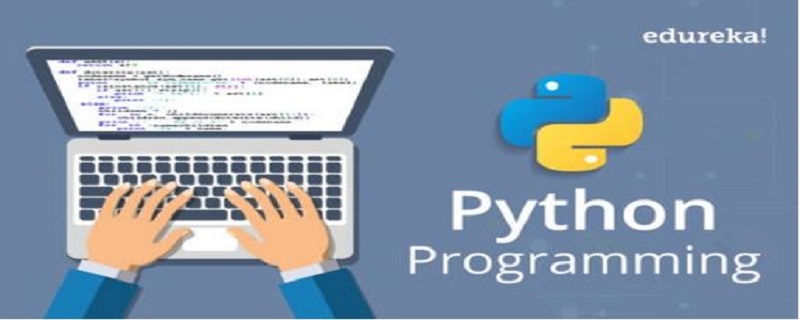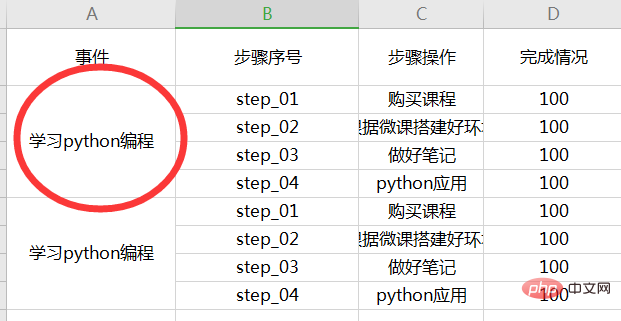How to use xlrd in Python to read merged cells

Merge cells

Operation method:
1. Use xlrd's own attributes: merged_cells
# Get the positions of all merged cells in the table and return them in list form (start row, end row, start column, end column )
merged = sheet.merged_cells #Result: [(1,5,0,1),(5,9,0,1)]
2. Use a loop to determine whether it is a merged unit The cell is still an ordinary cell, and the first row value in the merged cell is assigned to the merged cell
def get_cell_type(row_index, col_index):
"""既能得到合并单元格也能得到普通单元格"""
cell_value = None
for (rlow, rhigh, clow, chigh) in merged: # 遍历表格中所有合并单元格位置信息
# print(rlow,rhigh,clow,chigh)
if (row_index >= rlow and row_index < rhigh): # 行坐标判断
if (col_index >= clow and col_index < chigh): # 列坐标判断
# 如果满足条件,就把合并单元格第一个位置的值赋给其它合并单元格
cell_value = sheet.cell_value(rlow, clow)
print('合并单元格')
break # 不符合条件跳出循环,防止覆盖
else:
print('普通单元格')
cell_value = sheet.cell_value(row_index, col_index)
# else: 添加改行后只那一个单元格的内容5,0 会返回2个值普通单元格/合并单元格
# print('普通单元格')
# cell_value = sheet.cell_value(row_index, col_index)
return cell_value
# 直接输入单元格的坐标。来获取单元格内容
# print(get_cell_type(5, 0))
# 利用循环输出某列的单元格内容
for i in range(1, 9):
print(get_cell_type(i, 2))PS: The simplest operation of reading merged cells in an Excel file
Question:
1. When outputting content, use coordinates to get the print. If there is an else in the outermost layer, 2 values will be returned (still confirming whether there will be other values if there is no outermost else. The problem exists)
2. It works fine when used for the first time, but the list returned by sheet.merged_cells is empty when used again? ?
Solution: Add formatting_info=True to the open file, and it will display normally
The above is the entire content of this article, I hope it will be helpful to everyone's study.
Related learning recommendations: python video tutorial
The above is the detailed content of How to use xlrd in Python to read merged cells. For more information, please follow other related articles on the PHP Chinese website!

Hot AI Tools

Undresser.AI Undress
AI-powered app for creating realistic nude photos

AI Clothes Remover
Online AI tool for removing clothes from photos.

Undress AI Tool
Undress images for free

Clothoff.io
AI clothes remover

Video Face Swap
Swap faces in any video effortlessly with our completely free AI face swap tool!

Hot Article

Hot Tools

Notepad++7.3.1
Easy-to-use and free code editor

SublimeText3 Chinese version
Chinese version, very easy to use

Zend Studio 13.0.1
Powerful PHP integrated development environment

Dreamweaver CS6
Visual web development tools

SublimeText3 Mac version
God-level code editing software (SublimeText3)

Hot Topics
 PHP and Python: Different Paradigms Explained
Apr 18, 2025 am 12:26 AM
PHP and Python: Different Paradigms Explained
Apr 18, 2025 am 12:26 AM
PHP is mainly procedural programming, but also supports object-oriented programming (OOP); Python supports a variety of paradigms, including OOP, functional and procedural programming. PHP is suitable for web development, and Python is suitable for a variety of applications such as data analysis and machine learning.
 Choosing Between PHP and Python: A Guide
Apr 18, 2025 am 12:24 AM
Choosing Between PHP and Python: A Guide
Apr 18, 2025 am 12:24 AM
PHP is suitable for web development and rapid prototyping, and Python is suitable for data science and machine learning. 1.PHP is used for dynamic web development, with simple syntax and suitable for rapid development. 2. Python has concise syntax, is suitable for multiple fields, and has a strong library ecosystem.
 PHP and Python: A Deep Dive into Their History
Apr 18, 2025 am 12:25 AM
PHP and Python: A Deep Dive into Their History
Apr 18, 2025 am 12:25 AM
PHP originated in 1994 and was developed by RasmusLerdorf. It was originally used to track website visitors and gradually evolved into a server-side scripting language and was widely used in web development. Python was developed by Guidovan Rossum in the late 1980s and was first released in 1991. It emphasizes code readability and simplicity, and is suitable for scientific computing, data analysis and other fields.
 Python vs. JavaScript: The Learning Curve and Ease of Use
Apr 16, 2025 am 12:12 AM
Python vs. JavaScript: The Learning Curve and Ease of Use
Apr 16, 2025 am 12:12 AM
Python is more suitable for beginners, with a smooth learning curve and concise syntax; JavaScript is suitable for front-end development, with a steep learning curve and flexible syntax. 1. Python syntax is intuitive and suitable for data science and back-end development. 2. JavaScript is flexible and widely used in front-end and server-side programming.
 How to run sublime code python
Apr 16, 2025 am 08:48 AM
How to run sublime code python
Apr 16, 2025 am 08:48 AM
To run Python code in Sublime Text, you need to install the Python plug-in first, then create a .py file and write the code, and finally press Ctrl B to run the code, and the output will be displayed in the console.
 Can vs code run in Windows 8
Apr 15, 2025 pm 07:24 PM
Can vs code run in Windows 8
Apr 15, 2025 pm 07:24 PM
VS Code can run on Windows 8, but the experience may not be great. First make sure the system has been updated to the latest patch, then download the VS Code installation package that matches the system architecture and install it as prompted. After installation, be aware that some extensions may be incompatible with Windows 8 and need to look for alternative extensions or use newer Windows systems in a virtual machine. Install the necessary extensions to check whether they work properly. Although VS Code is feasible on Windows 8, it is recommended to upgrade to a newer Windows system for a better development experience and security.
 Where to write code in vscode
Apr 15, 2025 pm 09:54 PM
Where to write code in vscode
Apr 15, 2025 pm 09:54 PM
Writing code in Visual Studio Code (VSCode) is simple and easy to use. Just install VSCode, create a project, select a language, create a file, write code, save and run it. The advantages of VSCode include cross-platform, free and open source, powerful features, rich extensions, and lightweight and fast.
 Can visual studio code be used in python
Apr 15, 2025 pm 08:18 PM
Can visual studio code be used in python
Apr 15, 2025 pm 08:18 PM
VS Code can be used to write Python and provides many features that make it an ideal tool for developing Python applications. It allows users to: install Python extensions to get functions such as code completion, syntax highlighting, and debugging. Use the debugger to track code step by step, find and fix errors. Integrate Git for version control. Use code formatting tools to maintain code consistency. Use the Linting tool to spot potential problems ahead of time.






